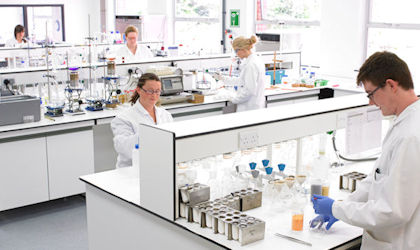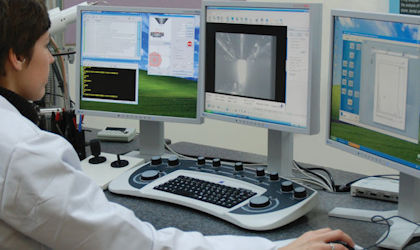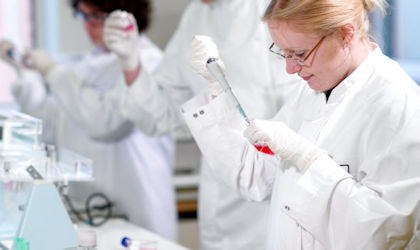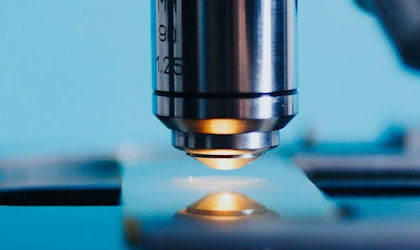Thermal analysis of food
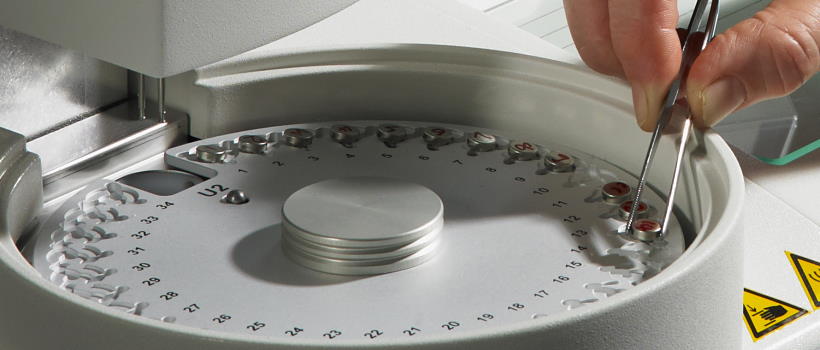
To discuss your needs
Thermal analysis techniques measure the physical and chemical properties of foods as a function of temperature or time.
Differential Scanning Calorimetry (DSC)
Differential scanning calorimetry is widely used in the food industry to measure the melting/crystallisation behaviour of fats, denaturation of proteins or the gelatinisation properties of starches. The degree of cook of starches or starch-based products and specific heat capacity of foods and raw materials can also be measured by DSC.
Key services
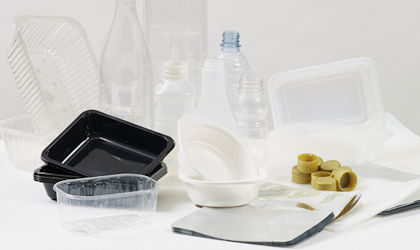
Packaging down the microscope
Microscopy use a range of techniques to examine packaging materials including plastic and metal.
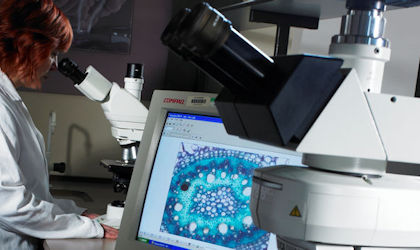
Structure and physical properties
Methods for objective characterisation of food structure and physical properties.
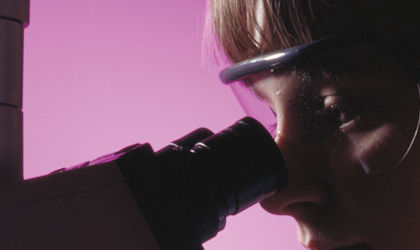
Foreign body identification scheme
Run independently from our own foreign body laboratory, the FOBS scheme enables other laboratories to check their competence in the identification of foreign bodies.
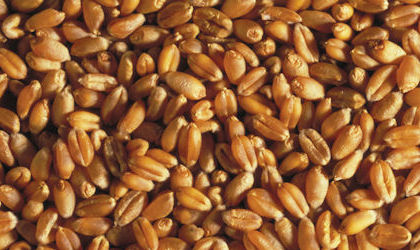
Cereals and milling services
Cereals and milling testing services information, pricing and submission.

Meat, poultry and seafood analysis
Analysis supporting meat, poultry and seafood suppliers, manufacturers and retailers.
Analysis training courses
Explore our analysis related courses including; Thermal processing and validation and Calculating meat content
Are you getting the most from your Membership?
Watch our membership FAQ videos and find out more about Member Service Account spending, Member Interest Groups, help and advice
Where we refer to UKAS Accreditation
The Campden BRI group companies listed below are accredited in accordance with the recognised International Standard ISO/IEC 17025:2017 by the United Kingdom Accreditation Service (UKAS). The accreditation demonstrates technical competence for a defined scope of methods, specific to each site, as detailed in the schedules of accreditation bearing the testing laboratory number. The schedules may be revised from time to time and reissued by UKAS. The most recent issue of the schedules are available from the UKAS website www.ukas.com. Campden BRI (Chipping Campden) Limited is a UKAS accredited testing laboratory No. 1079


